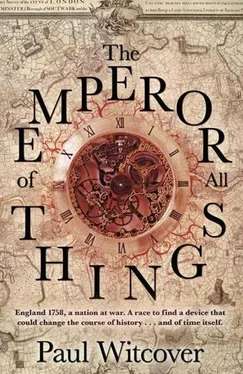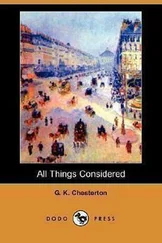Quare said nothing until the man was through the door. Then he called out: ‘I’m no traitor, Longinus. And neither was Master Magnus.’
The only response was the shutting of the door and the click of the key turning in the lock.
Alone, Quare felt the weight of all that had happened settle once again on his shoulders. As an orphan, he had known his share of hopeless moments, but nothing quite like this, with the threat of a hangman’s noose staring him in the face. His friends and fellow journeymen were dead, murdered by a maniac who was still at large, perhaps even, despite what he had told Mrs Puddinge, still in the city. His landlady, whom he had heretofore thought of in maternal terms, had revealed herself as a spy – and what’s more, a spy motivated not by patriotism but by avarice. Nor did it seem to him that his own motivations in that regard were any purer, any less selfish, for hadn’t he become a regulator in order to advance his prospects in the guild, to acquire knowledge of horological innovations that would have been unavailable to him otherwise, and to learn the truth about his parentage? To ask the question was to answer it. No, he had no right to cast stones at Mrs Puddinge. He felt as if he had soiled his soul, and though Sir Thaddeus’s suspicions of his loyalty were unfounded, he could not really claim to be innocent. London, he perceived, was a great murderer of innocence. But who could hold the city to account for its crimes?
Without noticing it, he had begun to pace the room like an animal in a cage. This was all Master Magnus’s fault, he told himself bitterly. If only the man had not involved him in his schemes, he would not be here now, a prisoner of his own guild. And if the master had not been so damned curious, so fond of machinations mechanical and otherwise, he would very probably still be alive, for though Quare did not know who had killed Master Magnus, or how, he did not doubt that the man’s death was related to his pursuit and investigation of the pocket watch he had sent Quare to retrieve from Lord Wichcote.
Could Lord Wichcote have engineered the master’s death, having learned through his own sources of the master’s interest in that timepiece, perhaps believing that Grimalkin was in the service of the guild, as was rumoured, and had therefore been sent to his house that night on the guild’s business? It seemed possible. He was a wealthy and powerful man, used to living beyond the law. But Lord Wichcote was not the only suspect. Not by a long shot. There was Grimalkin, for one. And Aylesford, for another – despite his disavowal of the deed. Even the Old Wolf was not above suspicion; certainly he had wasted no time in turning the situation to his advantage by seizing control of the Most Secret and Exalted Order; after all, it was common knowledge that he had envied Master Magnus his leadership of that order and coveted it for himself. The same was true, to a lesser degree, of Master Malrubius, who nurtured not only his own ambitions but those of the Old Wolf as well. It sickened Quare to think that the Worshipful Company was so riddled with corruption and intrigue as to render the murder of one master by another an eventuality impossible to reject out of hand, yet, all things considered, he couldn’t argue against it. Whether that was a result of his own predicament or an accurate reflection of the facts, he was unable to judge.
By now the fire had raised the temperature of the room a considerable amount. Quare had long since divested himself of the second-best coat; only with difficulty had he refrained from throwing the odious – and odiferous – garment on the flames, reminding himself that his prospects were uncertain, and that he might very well be glad of a warm coat soon enough. It lay like a heap of refuse on the floor in the furthest corner. Quare, tired of his circular perambulations, sat on the edge of the pallet and stared into the flames as if their dancing shapes held the answers to all the questions that plagued him. Yet he found no answers there, only further questions, not the least of which was whether the fire had been lit not for his comfort but as a preliminary to other, graver tortures. He could not help recalling that Master Magnus had threatened him with devices as wondrous in their way as the stair-master, only turned to a darker purpose. Now the decision to introduce him to any such devices rested with the Old Wolf and Master Malrubius. Quare could not be sanguine at the prospect.
He considered scattering the logs to diminish the blaze, but to do so would have required him to enter the cavernous mouth of the fireplace, which was so deep that it might almost have been a separate room. Besides, there was no poker at hand, and he didn’t think his well-worn boots were up to kicking apart such a conflagration. He would have to wait for the fire to burn itself out. He wished now that he had thought to ask Longinus for water. When would the man return? How long had he been gone? Quare fished out his pocket watch: barely two hours had gone by since he’d left Mrs Puddinge’s house. He would have guessed twice that, and he found the discrepancy unsettling; his two clocks, the inner and the outer, so to speak, were usually in closer agreement, and the fact that he should be so badly mistaken in his estimate now seemed due less to the finicky nature of time than to the radical upending of his life. He was running out of true, and he did not know how to put himself right again.
As Quare’s anger ebbed, wilting in the heat, grief took its place – a grief that had been there all the time, biding beneath the agitated surface of his feelings. The faces of Farthingale, Mansfield and Pickens appeared to his mind’s eye as he last remembered seeing them, flushed with drink and laughter in the smoke-filled confines of the Pig and Rooster. Try as he might, he could not recall anything of the fight that had ended the night … and their lives. His memories cut off so abruptly that it was as if they had been surgically excised, and he wondered if the cause had less to do with the amount of alcohol he’d consumed than the watch that had somehow, or so he believed, protected him from what should have been a fatal wound.
The trio of grinning faces seemed to reproach him now – for what, exactly, he didn’t know. Perhaps for having survived. He mourned them, and in doing so mourned something in himself. He prayed for the repose of their souls.
His grief for Master Magnus was of a different order, mixed as it was with anger, guilt, gratitude, and a host of other emotions he felt keenly but could not put a name to. He well remembered his first sight of the man. It had been six years ago, in Mr Halsted’s Dorchester shop, late on a Saturday morning in June. Mrs Halsted, who usually manned the front desk, was busy in the kitchen, while Master Halsted and Quare’s fellow apprentice, Jim Grimsby, were in the back room that served as both a workshop and sleeping quarters for the two apprentices.
Quare had been examining a mantel clock brought in for repair by Mr Symonds, the vicar, who stood on the other side of the desk, gazing down at the disassembled timepiece spread out between them, an anxious look on his face as though it were a sickly living creature, a beloved pet, perhaps, and not a mechanical device. Elsewhere in the shop, the vicar’s wife and his beribboned young daughter, thirteen-year-old Emily, a vivacious blonde-haired girl whose bright blue eyes were of more interest to Quare at present than the insides of her father’s clock, were examining a case of pocket and pendant watches: Mrs Symonds with unfeigned interest, while Emily’s blue eyes kept rising to meet Quare’s gaze, then darting away, a pretty blush colouring her cheeks. This heated if innocent flirtation, which had been going on between them for months now despite, or perhaps because of, the fact that the participants had not spoken more than a handful of times, and then only to exchange platitudes in the constraining presence of their elders, had made for as diverting a morning as Quare could desire, but he knew at once, upon looking up at the jingle of the bell announcing a new customer, that things were about to get a lot more diverting.
Читать дальше












